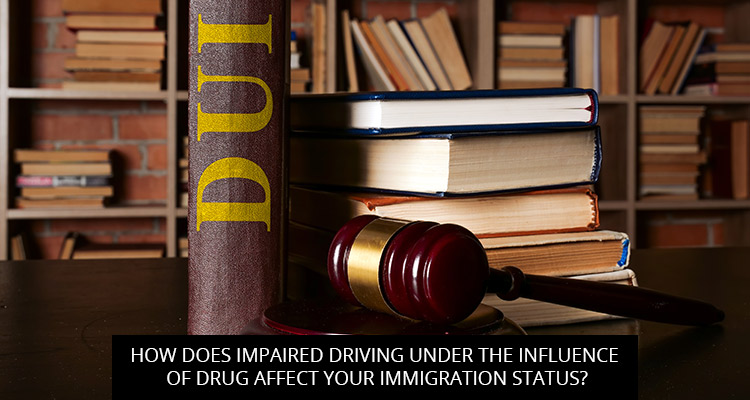
According to the Immigration and Refugee Protection Act, a foreign national can be ordered deportation if the foreign national is convicted of a serious crime. A crime is serious if:
- the maximum sentence someone could get is 10 or more years in prison, even if they get a shorter sentence or no time at all in prison, or
- the sentence that someone does get is more than 6 months in prison or jail.
With the legalization of marijuana, driving under the influence of drug has drawn in a great deal of public consideration. It is a crime to operate a conveyance whilst impaired by drug, regardless of extra evaluations affirming specific blood intoxicant concentrations. An individual committing a debilitated driving crime, could confront a fine, criminal accusations or jail. On the off chance that the offence is prosecuted by prosecution, the individual is liable to detention for a term of approximately 10 years; if the offence is culpable on summary conviction, the individual is liable to detention for a term of not above 2 years to less a day.
When somebody who is not a Canadian citizen is accused of a crime, the police pass this data to the Canada Border Services Agency (CBSA). CBSA is responsible for administering immigration law. CBSA can confine an individual for immigration reasons regardless of whether they are not detained because of the criminal charges. Also, if the person is sentenced for a crime, CBSA might set up a report. The report might prompt a deportation order or an “admissibility hearing” before the Immigration Division of the Immigration and Refugee Board (IRB). The hearing can bring about a deportation order.
This implies that permanent residents might lose their status and need to leave the country; temporary residents (including visitors, international students and foreign workers) will be unable to enter or stay in Canada; refugee claimants may not be qualified to have their case referred for a refugee hearing.
To enter Canada temporarily, the person has to apply for a temporary resident permit. This permit applies to those who are otherwise inadmissible but have a reason to travel to Canada that is justified in the circumstances. To be eligible for a temporary resident permit, the person’s need to enter or stay in Canada must outweigh the health or safety risks to Canadian society, as determined by an immigration or a border services officer. The processing fee is non-refundable and there is no guarantee that the person will be issued a temporary resident permit.
To become admissible again, the person can also apply for criminal rehabilitation. To apply, the person must show that he or she meets the criteria, has been rehabilitated and is highly unlikely to take part in further crimes. Also, at least five years must have passed since the end of his or her criminal sentence (this includes probation) and the day he or she committed the act that made him or her inadmissible.
If the person is inadmissible for criminality, the person may be eligible for deemed rehabilitation if at least 10 years has passed since completing the sentence.
It is imperative for non-citizens and criminal law practitioners to be aware of the potential immigration consequences of driving under the influence of drug, although it is always a safe approach to drive responsibly.
We Can Guide You!
Please get in touch with one of our experienced Immigration Lawyer at Ayaz Mehdi Professional Corporation for a detailed advice tailored to your situation.
Disclaimer: Kindly note that sending or receiving information through this site does not establish a solicitor-client relationship. Legal matters are fact-specific, and the law is variably changing. The views expressed and the content provided on this blog are general guidelines and cannot substitute for proper legal advice. Schedule your legal consultation by clicking here: Let’s meet!






